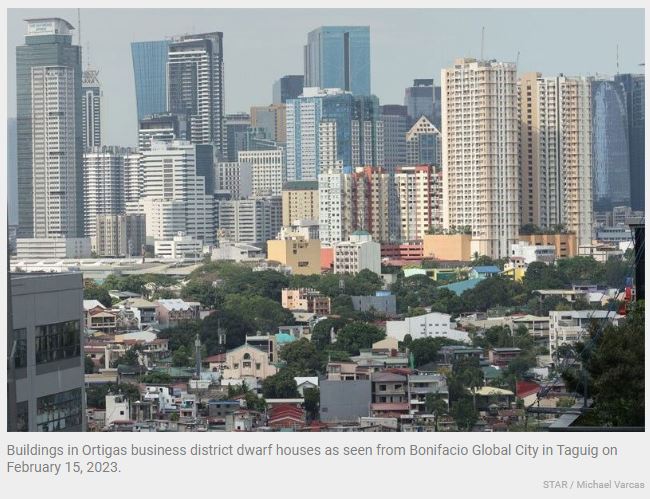Philippines: Inflation expected to remain elevated
MANILA, Philippines — The country’s inflation rate is expected to remain elevated and to average 8.1 percent in the first quarter of the year, according to First Metro Investment Corp. (FMIC) and University of Asia and the Pacific (UA&P) Capital Markets Research.
In its Market Call report released yesterday, FMIC and UA&P said the headline inflation rate, which zoomed to 8.7 percent in January driven by food and utility costs after an earlier perception of a peak of 8.1 percent in December, is among the dark clouds seen on the horizon.
“Headline inflation will likely slow down from these heights, but our projected average for Q1 (first quarter) remains at 8.1 percent,” FMIC and UA&P said.
The two institutions said local agricultural output would need to improve quickly for the inflation rate to ease faster.
“Notably, Thai rice prices (five percent broken) have risen by 21.7 percent YoY (year-on-year) by January and threaten to upset expectedly milder food inflation in Q2 (second quarter),” FMIC and UA&P said.
To tame inflation, the Bangko Sentral ng Pilipinas raised key policy rates by 50 basis points (bp) last week, which brought the overnight reverse repurchase rate to six percent.
FMIC and UA&P said they expect another 25-bps rate increase next month.
National Economic and Development Authority Secretary Arsenio Balisacan said in a briefing at Malacañang yesterday that inflation should come down by the middle of this year once issues affecting prices are addressed.
“We are hoping we’ll see a plateau of that inflation. Next month, we’ll see new data on inflation. We did not have major typhoons during the last few months. We are expecting better data there. But there are always surprises and it surprised me when I saw that number in January,” he said.
Despite headwinds including high inflation, FMIC and UA&P have a bullish outlook on the Philippine economy.
“Most recent economic data suggest that the Philippine economy may weather the global recession relatively unscathed,” the two institutions said.
While consumer spending may ease due to high inflation, they said employment, the personal income tax break and overseas Filipino workers’ remittances would soften the impact.
The two institutions said employment may ease slightly in the first quarter but should recover as the government ramps up infrastructure spending.
They also said the manufacturing sector is expected to drive economic growth.
In terms of trade, FMIC and UA&P expect imports to ease slightly in the first quarter, and for exports to dip.
“So we expect trade deficits to average still at above $4 billion per month,” they said.
Source: https://www.philstar.com/business/2023/02/22/2246632/inflation-expected-remain-elevated


 Thailand
Thailand




